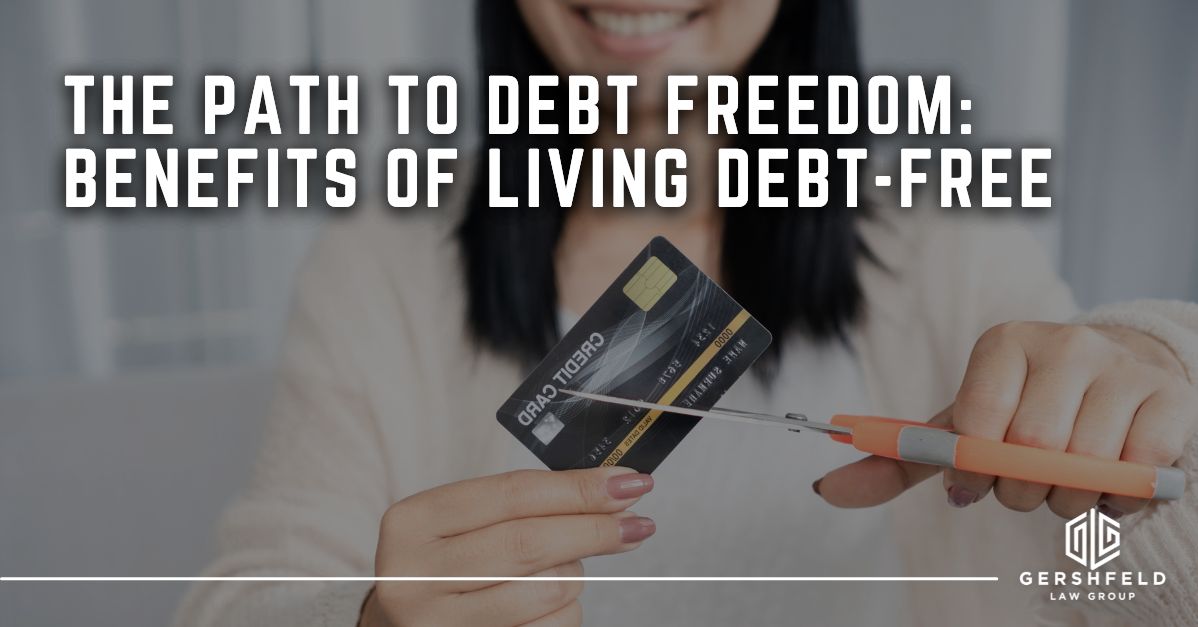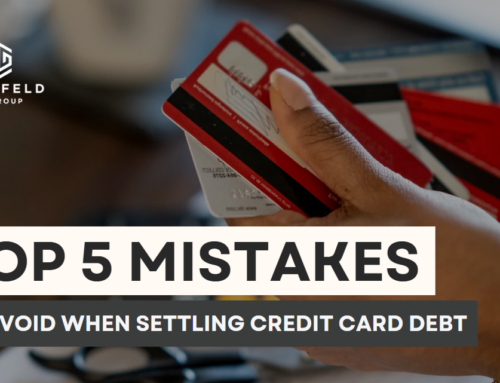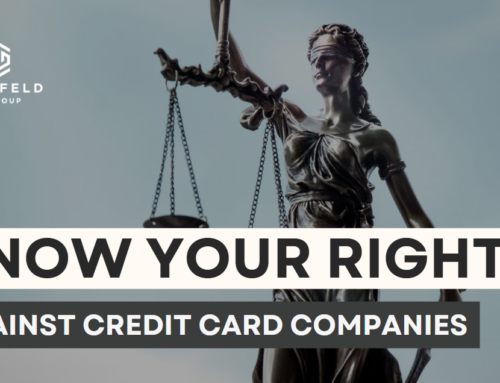Imagine yourself with the soft sound of waves crashing onto the shore while you stand on a spotless, sun-kissed beach, enjoying the sensation of total freedom while gazing at the magnificent horizon. You feel as if a weight has been taken off your shoulders during this peaceful moment; the stress of credit card debt, house payments, and college debts is gone. Rather, you are living in the moment and not worrying about money.

Living debt-free is definitely a game-changer. It brings peace of mind, financial security, and the freedom to pursue your dreams without the burden of debt. In this blog, we’ll explore the numerous benefits of achieving debt freedom and how it’s something we CAN achieve.
What Does It Mean To Be Debt-Free?
Being debt-free, as defined by the Cambridge Dictionary, is owing no money at all. It is a key financial goal for many since it symbolizes financial freedom from obligations like credit card debt, auto loans, and school loans. However, various people may have different definitions of being debt-free.
While some may consider it acceptable to have “good debt,” such as a low-interest home loan, others would define it as having no debt at all. Which is true, though, and is having any debt at all truly acceptable?
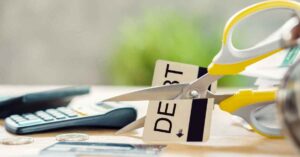
What is Good Debt?
Let’s break down the concept of good debt in simple terms.
Money borrowed for significant life investments that advance both your financial prosperity and general well-being is considered good debt. It assists you in obtaining things that may increase in value over time, such as a house or an education. Furthermore, responsible debt management through on-time payments can raise your credit score, which will facilitate obtaining better conditions on future loans.
Examples of good debt (if payed always on time):
- Mortgage: Borrowing money to buy a home is often considered good debt because it helps you acquire an asset that can appreciate over time. Plus, mortgage interest rates are typically lower compared to other types of loans.
- Student Loans: Taking out loans to invest in education can be seen as good debt because it enhances your earning potential and career prospects. Education loans often offer lower interest rates and flexible repayment options.
- Business Loans: Borrowing money to start or expand a business can be a wise investment if it leads to increased revenue and profitability. Business loans may enable you to leverage opportunities for growth and innovation.
Having good debt can help you get wealthier, accomplish your objectives, and get better credit. But in order to preserve financial stability, it is necessary to borrow money sensibly and give debt repayment top priority. If you feel that having very little good debt is your way of being debt-free, then be our guest. But if you feel that having no debt at all, good or bad, is the way to go, then keep on reading.
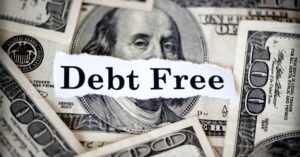
What Does A Debt-Free Life Look Like?
Now let’s talk about really being debt-free, and not just having good debt. The reality is that being completely debt-free can improve your financial situation and general quality of life.
For example, financial peace of mind is the primary benefit of being debt-free. You are free to concentrate on other areas of your life without having to worry about always making your monthly payments. The burden of having to make payments every month is gone. Furthermore, not having any debt gives you a sense of stability and security because you are not dependent on lenders or creditors.
The financial freedom that comes with being debt-free is among its most alluring advantages. You can spend more of your discretionary money when you’re not burdened by debt. Think about the options: you might invest in your future, save for a dream vacation, or just treat yourself to occasional indulgences guilt-free.
If you pay off your credit card debt, for instance, you could use the money you would have paid in interest to treat yourself to a cup of coffee every day (like a pumpkin spice latte!) or to other delightful activities. Having no debt enables you to focus your resources on the things that are most important to you, improving your general well-being and giving you a stronger sense of fulfillment.
But, is it truly realistic to think of leading a debt-free life? Can you really get rid of your debt?
Debt Freedom: Is It Just a Fairytale?
For most people, thinking of owing no money sounds like something that’s too good to be true, or something that happens in other countries, not in the U.S. But, let us tell you that becoming debt-free is an achievable goal. Yes it requires consistent effort and strategic steps but it’s certainly not impossible! But there are some myths surrounding the whole “debt-free life”.
- Being debt-free means being rich
Being debt-free signifies effective financial management, not necessarily substantial wealth. It’s about achieving peace of mind rather than accumulating wealth.
- Only high earners can be debt-free
Debt-free living is attainable with disciplined budgeting and smart spending habits, regardless of income level. It’s more about financial management than the amount of money earned.
- To be debt-free, avoid credit cards
Credit cards can be advantageous when used responsibly, offering rewards and building credit. The key is responsible usage—spending within one’s means and paying off balances monthly.
- No more fun when you’re debt-free
Achieving debt-free status doesn’t mean sacrificing enjoyment. With budgeting and savings, activities like dining out and traveling remain feasible without financial strain.
- The journey to being debt-free is straightforward
Becoming debt-free often demands dedication and tough decisions. However, the ultimate goal of financial freedom is well worth the effort.
- Loans are a must for significant expenses
Thoughtful planning can minimize the need for loans. Alternatives like community colleges or purchasing used cars outright can reduce reliance on loans for major expenses.
Being debt-free is totally reasonable and doable! But how can you get started?
Begin Your Debt-Free Journey Today!
Sorting through your debts is the first step in starting the process of becoming debt-free. Make a thorough inventory of all of your debts, including the amounts owed each month, interest rates, and current balances. This summary can assist you in creating a repayment schedule and determining which debts should be paid off first.
Next, figure out how much you can put toward debt repayment by reviewing your monthly budget. Find areas where you may save costs, such eating out or unused subscriptions, to increase the amount of money you have available to pay off debt.
You can also accelerate your debt payback process by raising your income. If you want to raise extra money to pay off debt, think about launching a side business, working overtime, or asking for a raise at work. Speak with your lenders to get your loans’ interest rates lowered. In the long run, lower interest rates can help you save money by speeding up the repayment of your debt.
But if you do all of this and you’re still feeling a bit stuck, you might want to look into getting help from a trustworthy debt settlement company. They can offer direction and assistance while talking with creditors to enable you to handle your debt more skillfully.
To begin the journey of being debt-free demands dedication and persistence. Through proactive actions and education on debt management techniques, you can strive towards financial independence and acknowledge your advancements as you go. You are just a few steps away from having complete debt freedom!



